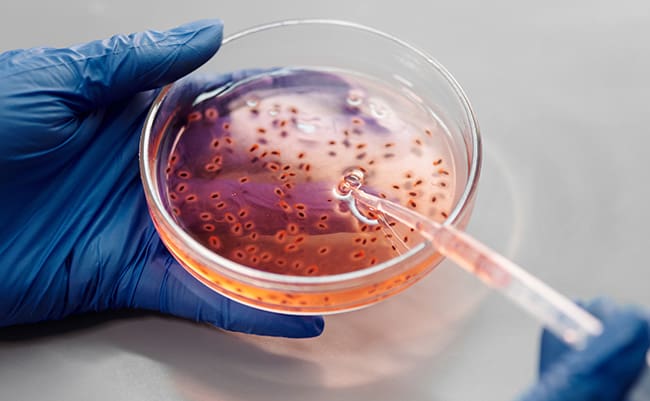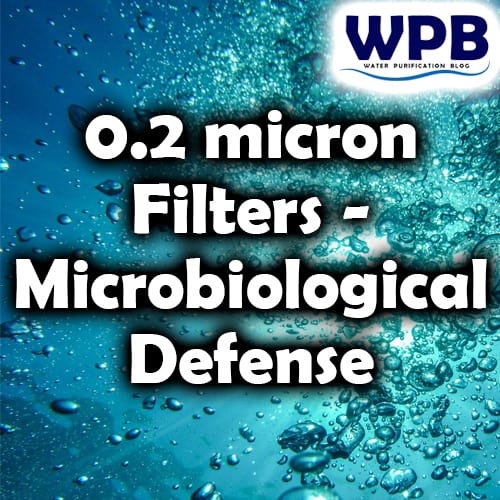In today’s world, where information is readily available at our fingertips, it is crucial to stay up-to-date with the latest advancements and technologies. One such area that has gained significant attention is filtration systems, particularly the efficiency and effectiveness of 0.2 micron filters.
If you’re looking to gain an in-depth understanding of these filters and how they can revolutionize your filtration needs, you’ve come to the right place.
Table of Contents
Understanding the Significance of 0.2 Micron Filters
0.2 micron filters, also known as sub-micron filters, are engineered with the purpose of removing microscopic particles from a fluid or gas.
These filters possess exceptional filtration precision, allowing them to trap particles as small as 0.2 micrometers in size.
To put this into perspective, a human hair is typically around 50-100 micrometers thick, highlighting the filtration capabilities of these filters.

Applications of 0.2 Micron Filters
- Air Filtration: 0.2 micron filters find extensive use in air monitoring applications, particularly in environments where the presence of airborne contaminants is a concern. These filters are widely referenced by organizations like the National Institute for Occupational Safety and Health (NIOSH) for their ability to collect airborne contaminants effectively.
- Fluid Clarification: Due to their fine filtration capabilities, 0.2 micron filters play a crucial role in various industries where particle removal and fluid clarification are of high importance. These filters are widely employed in laboratory settings, pharmaceutical manufacturing, and the biotechnology industry to ensure optimal fluid quality and prevent contamination.
Unmatched Filtering Efficiency
The effectiveness of 0.2 micron filters lies in their ability to remove a wide range of contaminants, including bacteria, mycoplasma, and even certain viruses. These filters act as a barrier, only allowing particles smaller than 0.2 micrometers to pass through, while effectively capturing and preventing larger particles from continuing their journey.
Comparison and the effectiveness of 0.2 micron filter cartridges
- Water Molecule: Approximately 0.3 nanometers (nm) in diameter.
- Sand Particle: Ranges from about 100 to 10,000 microns (µm) in diameter.
- Silt Particle: Ranges from about 2 to 50 microns (µm) in diameter.
- Human Hair: About 50 to 100 microns (µm) in diameter.
- E. coli Bacteria: Roughly 0.5 to 1 micron (µm) in diameter and 2 to 6 microns in length.
- Cryptosporidium Parasite: Around 4 to 6 microns (µm) in diameter.
- Giardia Parasite: Approximately 8 to 15 microns (µm) in diameter.
- Hepatitis B Virus: Roughly 22 to 25 nanometers (nm) in diameter.
- Poliovirus: About 25 to 30 nanometers (nm) in diameter.
- 0.2 Micron Filter Cartridge Pores: Able to effectively capture particles as small as 0.2 microns (µm) in diameter, which includes many bacteria and larger viruses.
Enhancing Safety with 0.2 Micron Filters
One of the significant advantages of incorporating 0.2 micron filters into your filtration systems is the enhanced safety they provide. These filters act as a protective shield, preventing harmful particles from passing through and potentially causing damage or contamination. Whether you’re working in a laboratory, a medical facility, or any other environment where sterility and cleanliness are crucial, 0.2 micron filters can play a vital role in ensuring the integrity of your processes and products.
Are 0.2 micron Filters a Guarantee for Safe Water?
0.2 micron filters are not a guarantee for safe water. They should be used as a final safety step for microbiological filtration.
They should be used after water disinfection with chlorine, chlorine dioxide, or some other disinfectant. Also, they are a good safety step after UV water sterilizers.
0.2 Micron Filter Significance in Microbiological Water Filtration
In the realm of water filtration, the significance of a 0.2 micron filter cannot be overstated. With increasing concerns about waterborne pathogens and contaminants, having an effective filtration system is crucial to ensuring the safety and quality of drinking water. 0.2 micron filters provide superior protection against harmful microorganisms.
Understanding Micron Ratings and Water Filtration
Before we delve into the specifics of 0.2 micron filters, let’s take a moment to understand the concept of micron ratings and their relevance in water filtration. Micron rating refers to the size of particles that a filter can effectively remove from a fluid stream. A micron, denoted as µm, is equivalent to one-millionth of a meter. Therefore, a 0.2 micron filter is capable of capturing particles as small as 0.2 micrometers.
Microbiological Contaminants in Water
Water sources can contain a wide range of microbiological contaminants, including bacteria, viruses, and protozoa. These microscopic organisms pose a significant health risk if ingested, potentially leading to gastrointestinal illnesses and other waterborne diseases. Hence, the need for robust water filtration systems that can effectively eliminate these harmful contaminants.
The Role of 0.2 Micron Filters in Microbiological Water Filtration
A 0.2 micron filter acts as a powerful barrier against microbiological contaminants, providing an added layer of defense in water filtration systems. These filters are specifically designed to trap and remove particles as small as 0.2 micrometers, effectively capturing most bacteria and larger viruses.
By incorporating a 0.2 micron filter into your water filtration system, you can significantly reduce the risk of microbial contamination in drinking water. These filters are engineered with advanced technologies that enable them to achieve high filtration efficiency without compromising water flow rates. This means that you can enjoy clean and safe drinking water without sacrificing convenience or speed.
Advantages of 0.2 Micron Filters
- Enhanced Removal of Bacteria: 0.2 micron filters excel at capturing bacteria, including common pathogens such as E. coli, Salmonella, and Legionella. The small pore size ensures that these microorganisms are effectively trapped and prevented from passing through the filtration system.
- Effective Virus Removal: While some viruses are smaller than 0.2 microns, many viruses exist in larger agglomerates or are bound to larger particles. A 0.2 micron filter can effectively remove these virus-carrying particles, significantly reducing the risk of viral contamination in drinking water.
- Protection against Protozoa: Protozoa, such as Giardia and Cryptosporidium, are larger than bacteria and can be effectively captured by 0.2 micron filters. These filters act as a robust barrier, preventing these parasitic organisms from entering the water supply.
Factors to Consider When Choosing 0.2 Micron Filters
Selecting the right 0.2 micron filter for your specific needs requires careful consideration of various factors. Here are a few key aspects to keep in mind:
- Filtration Material: Different filter materials offer varying levels of compatibility with specific fluids or gases. Common materials used for 0.2 micron filters include polytetrafluoroethylene (PTFE), polyethersulfone (PES), and cellulose acetate (CA). Choosing the appropriate material ensures optimal filtration efficiency and longevity.
- Pore Size: While all 0.2 micron filters have the same nominal pore size, it is crucial to consider the distribution of pore sizes within the filter membrane. An even pore size distribution enhances filtration efficiency and prevents clogging, leading to longer filter life and improved performance.
- Flow Rate: Depending on your application requirements, the flow rate supported by a 0.2 micron filter becomes a critical factor. It is essential to choose a filter that can handle the desired flow rate without compromising its filtration capabilities.
- Compatibility: Consider the compatibility of the filter with the fluid or gas you intend to filter. Some filters may be specifically designed for certain fluids or gases, ensuring optimal performance and chemical resistance.
- Ease of Installation and Maintenance: Opt for filters that are easy to install and maintain. Some filters come with user-friendly features such as quick-change cartridges, making the replacement process hassle-free.
Conclusion
In conclusion, a 0.2 micron filter plays a crucial role in microbiological water filtration, safeguarding against harmful bacteria, viruses, and protozoa.
Its ability to capture particles as small as 0.2 micrometers makes it an indispensable component of any comprehensive water filtration system. By choosing a high-quality 0.2 micron filter that suits your specific requirements, you can ensure the delivery of clean, safe, and refreshing drinking water for you and your family or customers.

Who am I?
I am working as a water treatment technical manager and I have more than 25 years of practical experience in water purification.
Water purification expert
After many years of experience in water purification, I want to share some of my knowledge and get people to know the real importance of water quality.
Water purification and water treatment are very complex themes, so it is important to explain them in an easy-to-read way.
On this blog, you will find many understandable, easy-to-read information about water purification.
I hope you enjoy it, find some useful information, and thank You for reading.
More info on my work and my expertise on water purification can be found on my LinkedIn profile.






